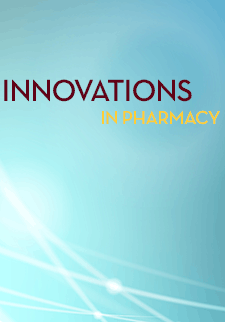Evaluation of a Longitudinal Institutional Advanced Pharmacy Practice Model
Erin Christensen, PharmD, BCPS
Emory University Hospital Midtown, Atlanta, Georgia
Kara Webber, PharmD, MHA
St John's Hosptial, Maplewood, Minnesota
Janet L Kelly, PharmD
University of Washington Medical Center
Stanley S Weber, BSPharm, PharmD, BCPP
University of Washington School of Pharmacy, Seattle, Washington
Teresa A O'Sullivan, BSPharm, PharmD, BCPS
University of Washington School of Pharmacy, Seattle Washington
DOI: https://doi.org/10.24926/iip.v9i3.992
Keywords: Quality Improvement, advanced pharmacy practice experience, longitudinal pharmacy practice experience, health-system pharmacy
Abstract
Objective: To evaluate a longitudinal experiential training model for advanced pharmacy practice experiences (APPEs).
Innovation: A six-month longitudinal pilot program named the Focused Institutional Longitudinal Experience (FILE) program was developed at two academic medical centers to maximize active participation of the student and minimize the time spent orienting and onboarding students to each APPE experience. A unique component of the FILE program is the longitudinal service project, which involved a medication use evaluation, including a review of published literature and drug policy recommendations to medical center quality committees.
Analysis: Student ratings regarding the quality and value of the FILE student experience was compared to the traditional APPE model. Nine quality measures were compared (e.g. amount of opportunity for direct patient care experience, learning, integration into healthcare team, and accountability for patient outcomes) between students from the FILE program to peers completing similar APPEs outside the FILE program. FILE students and APPE preceptors also completed surveys regarding the value of several program aspects.
Key Findings: There was no difference between FILE and non-FILE student self-rated measures of APPE quality, and thus the decision to participate in a longitudinal APPE program should be based on the personal preference of the student. Students in the FILE program agreed or strongly agreed (mean score 4.3) that they felt prepared for post-graduate training at the completion of the program. The potential value that students in a longitudinal program might bring to the site is reinforced by the general agreement by preceptors in the end of year survey that FILE students take less of their time to orient to their service and the trend toward perception that FILE students are more likely to independently participate in patient care activities.
Next Steps: To address feedback on preceptor-mentor role and the desire for more interaction with pharmacy residents, students are now paired with a pharmacy resident, and the student and resident work together on the service project with a clinical pharmacist as an advisor. Updated standards of practice clearly delineate the roles and responsibilities of students, residents, and the clinical pharmacist preceptor. Annual surveys of FILE students and preceptors provide necessary feedback to continuously improve the quality of the program.
Article Type: Note
Downloads
Author Biographies
Erin Christensen, PharmD, BCPS, Emory University Hospital Midtown, Atlanta, Georgia
At the time of this project this author was a pharmacy resident at University of Washington Medicine in Seattle, Washington
Kara Webber, PharmD, MHA, St John's Hosptial, Maplewood, Minnesota
At the time of this project this author was a pharmacy resident at the University of Washington Medicine
Janet L Kelly, PharmD, University of Washington Medical Center
Director, Pharmacy Residency Programs University of Washington Medicine
Manager, Clinical Pharmacy Services at University of Washington Medical Center
Stanley S Weber, BSPharm, PharmD, BCPP, University of Washington School of Pharmacy, Seattle, Washington
Associate Dean for Assessment & Accreditation
University of Washington School of Pharmacy
Seattle, WA
Teresa A O'Sullivan, BSPharm, PharmD, BCPS, University of Washington School of Pharmacy, Seattle Washington
Director, Professional Experience Programs
University of Washington School of Pharmacy
Seattle, WA



